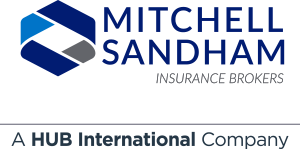Rules for Election of Directors of TSX Listed Entities
A new rule comes into effect for 2013 for TSX listed companies. Such entities will be required to vote on individual people, (not by slate), on an annual basis (not staggered), and communicate election practices regarding director voting.
This looks like just another compliance requirement for an overburdened administration team, because I cannot find justification for the changes. The suggestion is that the changes will improve corporate governance and bring Canada in line with other jurisdictions, but I do not recall much individual shareholder interest in the annual meetings, let alone in individual director elections. John Conway at mcmillan, here, Bennett Jones, here, and Cassels Brock, here, have all commented on the issue with Mr. Conway providing the most detail. A Rotman report, here, says 59% of TSX companies already have majority voting, and 89% have individual voting. It calls these features evidence of good corporate governance and a measure of board independence. However, this report also suggested that in 2011 there were only three companies where the majority voting actually resulted in director change, and in one of these it was a convenient mechanism for a 36.4% owner. It does not seem to me that the TSX has just thrown David a slingshot to slay a tyrannical corporate goliath. I have not been able to find any study that shows a direct correlation between independence and improved long term shareholder value. To me it means more words on paper for a large number of entities, but no meaningful outcome for anyone. Significant effort has been expended on a solution in search of a problem. Not the first time, and unfortunately not the last. But all companies will have to task a busy executive with further documentation, and directors with more reading.
Here I wait with great anticipation that the shareholder activists have found the magic wand to end corporate fraud and neglect. My concern is that most of the new compliance regulations, including the considerable ‘over-disclosure’ created by IFRS, here, will only serve to hide fraud in open sight, while shielding accountants, auditors, lawyers, securities underwriters, and the management perpetrators from liability, all while causing more and greater loss to shareholders and heaping the blame on directors.
Greg Shields is a D&O, Professional Liability, Employment Practices Liability, Fiduciary Liability and Crime insurance specialist and a Partner at the University and Dundas (Toronto) branch of Mitchell Sandham Insurance Services. He can be reached at gshields@mitchellsandham.com, 416-862-5626, or Skype at risk.first.
CAUTION: This article does not constitute a legal opinion or insurance advice and must not be construed as such. It is important to always consult a registered and truly independent insurance broker and a lawyer who is a member of the Bar or Law Society of the relevant jurisdiction with regard to this material before making any insurance or legal decisions. All material is copyrighted by Mitchell Sandham Inc. and may not be reproduced in any form for commercial purposes without the express written consent of Mitchell Sandham Inc. Anyone seeking to link this document from any external website must receive the consent of Mitchell Sandham Inc. by sending an e-mail to gshields@mitchellsandham.com.


